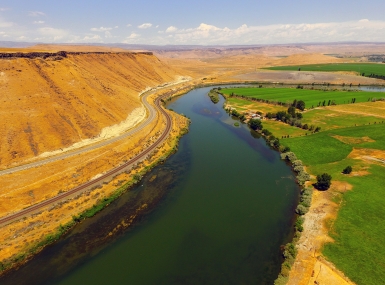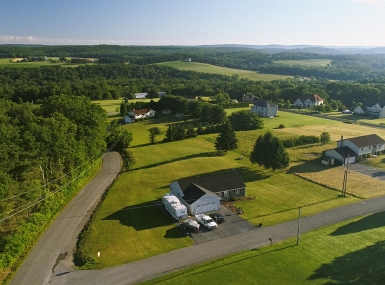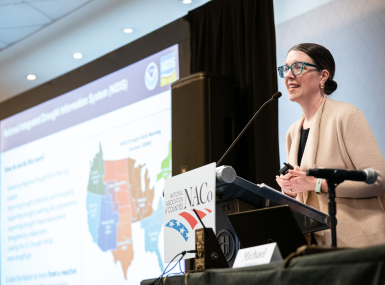Military Communities Initiative
Connecting Counties and Military Installations

502 counties host U.S. military installations, representing more than 15 percent of America’s counties nationwide. In partnership with the U.S. Department of Defense (DOD) Readiness and Environmental Protection Integration (REPI) Program, NACo supports communication and information sharing between county governments and neighboring military installations. NACo is creating a Military Communities Resource Hub to share timely and relevant DOD updates and opportunities for county leaders to connect with each other and DOD representatives. This hub will primarily serve county officials who have an interest or role in coordinating with their local military installation personnel on administrative, environmental, public safety, economic development or other matters.
Featured Partner Resources
The Department of Defense (DOD) relies on secure access to realistic live-fire training, weapons system testing and essential operational environments to build a lethal, resilient combat force. However, incompatible land-use changes near installations, including commercial and residential development, continue to erode training capacity. To address these threats, Congress created the Readiness and Environmental Protection Integration (REPI) Program in 2002 under the Fiscal Year (FY) 2003 National Defense Authorization Act. The REPI Program provides the Military Services with tools to protect irreplaceable training areas and mission-critical assets. Through cost-sharing agreements between the Military Services, other Federal agencies, state and local governments, and private organizations, the REPI Program preserves military missions by avoiding land-use conflicts near military installations, addressing environmental restrictions that limit military activities and increasing military installation resilience.
Produced by the Department of Defense REPI Program, these state-level fact sheets highlight how REPI investments are supporting military readiness, local economies and environmental resilience. Each report details the locations, funding levels, partners and outcomes of REPI projects within individual states, offering counties a snapshot of defense-community collaboration in their region.
The Sentinel Landscapes Partnership is a coalition of federal agencies, state and local governments, and private organizations that work with willing landowners and land managers to advance sustainable land use practices around military installations and ranges. Founded in 2013 and codified in statute through the Fiscal Year 2024 National Defense Authorization Act (10 U.S.C §2693), the partnership aligns the objectives of the U.S. Department of Agriculture, Department of Defense, and Department of the Interior to strengthen military readiness, conserve natural resources, bolster agricultural and forestry economies, increase public access to outdoor recreation, and enhance landscape resilience.
Counties with Military Installations
View the interactive map in full screen. Click here to access the map on NACo's County Explorer.
Related Topics
Related NACo Committee and Programs
Stay up-to-date
To be included in the Military Communities Research Hub, please complete the form.
















